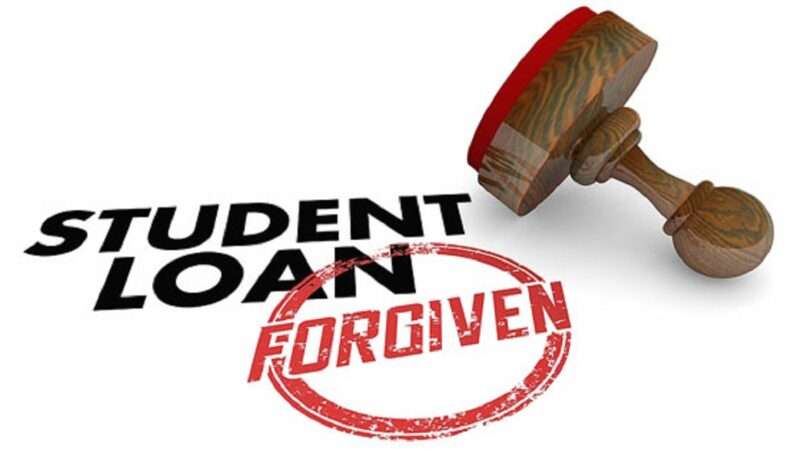

Yesterday, a coalition of eleven red states led by the state of Kansas filed a lawsuit challenging the legality of President Biden's new loan forgiveness plan, which would forgive at least $156 billion in federal student loan debt. I suspect I am not the only observer who had a strong sense of de ja vu, when they saw this filing. Kansas v. Biden has many obvious similarities to Biden v. Nebraska, the case in which the Supreme Court invalidated the administration's previous massive student loan forgiveness plan (which would have discharged some $430 billion in student debt). Both involve efforts to forgive large amounts of student debt by exploiting vaguely worded statutes. Both plans are vulnerable under the "major questions doctrine," which requires Congress to "speak clearly" when authorizing an executive branch agency to make "decisions of vast economic and political significance." And both cases involve similar procedural "standing" questions.
Because I believe the Supreme Court was right to rule against the administration in Biden v. Nebraska, I think courts should also rule against it here, too. There may be ways to distinguish the two cases. But, so far, it looks like it's going to be an uphill battle for the administration.
The biggest potential difference between the cases is that Biden v. Nebraska involved an effort to forgive debt under the 2003 HEROES Act, while the current plan relies on the Higher Education Act of 1965 (HEA), as amended. When the previous case was being litigated, some suggested the Administration should rely on Section 432a of the HEA instead of or in addition to the HEROES Act. Section 432a gives the Secretary of Education the power to "enforce, pay, compromise, waive, or release any right, title, claim, lien, or demand" related to federally backed student loans. I critiqued this theory here.
In the aftermath of the Supreme Court's decision last June, the Biden administration announced they were indeed going to try to put together a new loan forgiveness plan using the HEA. But instead of relying on Section 432a, the administration adopted a rule that relies on Section 455 (codified as 20 U.S.C. Section 1087e), which gives the Department of Education the power to establish "Income contingent repayment schedules" that "shall require payments that vary in relation to the appropriate portion of the annual income of the borrower (and the borrower's spouse, if applicable) as determined by the Secretary [of Education]." The administration claims this provision gives it the power to adopt repayment plans that essentially forgive at least $156 million in student debt. As the plaintiff states' complaint summarizes it, the rule "(1) defines "discretionary income" to be income above 225% of the applicable Federal poverty guideline, (2) sets the monthly payment amount at $0 if the borrower's income falls below that threshold, (3) caps the monthly payment amount at 5% of the borrower's income that goes above that threshold for undergraduate loans, and (4) cancels all loans where the original principal balance was $12,000 or less after the borrower has made 120 monthly payments or the equivalent."
The administration claims all this comes within the power to create "income contingent repayment schedules." But this power is not broad enough to permit massive loan forgiveness, as opposed to merely offering some flexibility in the timing of repayment, based on income. As the states rightly point out, the administration's theory of Section 455 would allow it to use this power to forgive virtually all federally backed student debt: "there is nothing in the Secretary's interpretation of the HEA that would prevent him from limiting debt repayment on income-driven repayment plans to 1% of income over $1,000,000 for 1 year only, with all remaining debt—typically 100%—cancelled by the federal government."
At the very least, it is far from clear that Section 455 gives the Department of Education such vast authority. And if it is not clear whether Congress has delegated such a sweeping power, then the agency's claim to authority must be rejected under the major questions doctrine, as it was in Biden v. Nebraska. In that case, the Court ruled that forgiving $430 billion in student debt qualifies as an issue of "vast" economic and political significance. The same is true of the current plan.
To be sure, $156 billion is a smaller amount than $430 billion., But as the states point out, the former figure almost certainly underestimates the true cost of the new plan, because it was calculated under the assumption that the Administration's HEROES Act plan would be upheld by the courts and implemented, thereby forgiving a large part of the debt that might otherwise be covered by the new HEA plan. Since the Administration lost Biden v. Nebraska, the HEROES Act plan was not implemented, and therefore the new HEA plan would likely cover a lot more debt than is included in the figure of $156 billion.
The boundary between major and minor issues under the major questions doctrine is admittedly a fuzzy one. But hundreds of billions of dollars in loan cancellation strikes me as major by any plausible standard. The scope of this plan is at least in the same general ballpark as that of the one struck down in Biden v. Nebraska.
A big issue in Biden v. Nebraska was whether anyone had standing to sue to challenge the plan. Most observers thought standing was the administration's best chance of winning the case, because it could be none of the plaintiffs challenging the plan had suffered the requisite "injury" required to get standing. Ultimately, the coalition of state governments challenging the plan got standing because one of them (Missouri) had a state agency (MOHELA) that services federally backed student loans, and the agency's income would be reduced if some of those loans were forgiven.
The plaintiff states in the present case have a similar standing argument. One of them (Louisiana) also has a state agency that services federal student loans and provides student loans of its own. The plaintiffs claim that it—like MOHELA—would lose income if some of those loans (or parts of them) were forgiven.
I have not studied the Louisiana agency (which though the complaint does not name it, is probably the Louisiana Office of Student Financial Assistance) in detail. Perhaps there are differences between it and MOHELA that I have overlooked (e.g.—may be they don't service as many federal loans, and instead mainly focus on providing their own loans; the latter could still be a path to standing if demand for state student loans goes down as a result of federal student loan forgiveness). But if LOSFA and MOHELA are relevantly similar, Louisiana can get standing in this case much the same way that Missouri got it in the other one.
As this case goes on, we will like learn more about LOSFA, how it works, and its connections to federal student loans. For now, I welcome correction on the subject by people who know more about Louisiana's student loan system than I do.
The plaintiff states in this case (like the ones in Biden v. Nebraska) also have several other standing theories. I think some of them deserve to prevail, as well. But all are at least somewhat more questionable than the MOHELA/LOSFA theory, an approach already validated by the Supreme Court.
As with the earlier plan, courts would do well to strike down this one because it is dangerous to allow the executive to raid the treasury to use it for purposes not authorized by Congress. For those keeping track, I also, for similar reasons, opposed Donald Trump's attempt to divert military funds to build his border wall.
While it is not directly relevant to the merits of the case, I should note that the new suit is being spearheaded by Kansas Attorney General Kris Kobach. He is a highly dubious figure that has been sanctioned by federal courts for various types of misconduct, on multiple occasions. I certainly understand if some people view any lawsuit led by Kobach with a healthy measure of suspicion. I am no fan of Kobach myself.
But bad people sometimes bring meritorious lawsuits. This appears to be just such a case.
The post Red States File Lawsuit Challenging New Biden Student Loan Forgiveness Plan appeared first on Reason.com.







